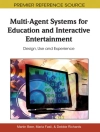Taking on issues normally left in the margins, Intercultural Communication and Ideology revises the way we think of intercultural communication by insisting that we consider its ideological component. In this brilliant and engaging book about culture and the interstices that comprise the grounds for our interactions, Adrian Holliday shows us the necessity for a cosmopolitan process that expands the basis of our intercultural work.
– Molefi Kete Asante, Temple University
‘Adrian Holliday’s highly readable and thought provoking volume is a welcome addition to the existing body of work on intercultural communication and ideology… With its comprehensive coverage of studies in the field and critical discussion of dominant theoretical paradigms, this refreshing book provides a valuable resource for both students and experienced researchers but also everyone interested in intercultural communication. An authoritative and open minded book the field will embrace.’
– Jo Angouri, University of the West of England
Although communication is central to the humanities and social sciences, the inter-cultural level is often, peculiarly, left out of accounts. So what is intercultural communication? How does it relate to global processes and questions of identity? This comprehensive book examines the main features of intercultural communication. It critically examines the main positions in the field. It addresses intercultural communication within the context of global politics, both addressing the specific problems that derive from Western ideology and setting out an agenda for research.
The book investigates categories of cultural action and itemizes the machinery for the illumination of inter-cultural processes. Holliday shows how a dialogue between national structures and creative universal cultural skills can be carried on in new locations, relating intercultural communication to theories of multiculturalism, cosmopolitanism and globalization, while also exploring how ideology permeates inter-cultural processes and develops an alternative ′grammar′ of culture.
İçerik tablosu
Preface and methodology
Chapter 1: Key Discussions
Essentialism
Neo-Essentialism
Cosmopolitanism
Imagined Certainty versus Acknowledged Complexity
Chapter 2: Critical Cultural Awareness
Models of Awareness
A Reconstructed Narrative
Critical Interpretivism
A Decentred Reading
Opening up Cultural Possibilities
Chapter 3: Cultural Complexity
Informants
An Emergent Methodology
Statements of Cultural Identity
Competing Social Theories
Complexity and Politics
Thinking about China
Chapter 4: The Indelible Politics of Self and Other
Othering
The Morality of ′Helping′
Struggling with Identity Recognition
Understanding the Discourse Politics of Othering
Chapter 5: Un-Noticed Periphery Identities
Claiming the World
′Westernization′ and Modernity
Chapter 6: A Grammar of Culture
Negotiating Culture
Particular Content and Universal Process
Particular Social and Political Structures
Particular Cultural Products
Underlying Universal Cultural Processes
Chapter 7: Discourses of Cultural Disbelief
Penetrating Professional Discourses
Sustained Disbelief
The Intercultural Line and the Third Space
Chapter 8: Creative Cultural Engagement
Qing and the Seminar
Learning from the Margins
Chapter 9: Culture, Real or Imagined?
The Centrality of Ideology
The Fact of Ideology
Cultural Realism
Conclusion
Glossary
Yazar hakkında
Adrian Holliday is Professor of Applied Linguistics at Canterbury Christ Church University












